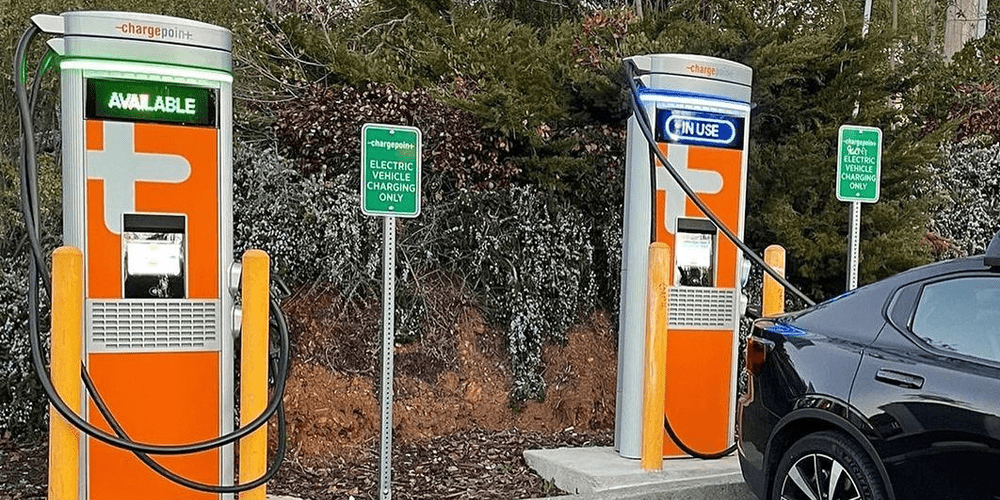ChargePoint moves into AI-driven buffer batteries from Stem
ChargePoint and Stem, an AI-driven clean energy solutions provider, have agreed to join forces and put artificial intelligence behind EV charging. They aim for lower operating costs, added energy resiliency, and options for battery backup when locating new sites.
ChargePoint will also analyse the EV charging demand at sites looking to install DC chargers and assess their eligibility for incentive programs—including the National Electric Vehicle Infrastructure (NEVI). The work with Stem will then help to determine if a battery energy storage system may reduce the operating costs at the site.
This integration of battery storage is key here since it also includes possibilities to pair charging with solar installations on-site, for example, and help to protect the grid. There is also the option to power up sites with low grid access.
“An integrated ChargePoint and Stem solution broadens the number of sites that can support high-speed charging economically at scale,” said Pasquale Romano, CEO of ChargePoint.
The partners add that sites with high utility demand charges can reduce or avoid these costs by utilising battery storage to mitigate demand peaks.
Additionally, the companies aim to integrate ChargePoint’s Express Plus platform with Stem’s clean energy platform, Athena, and on-site energy storage.
Express Plus is designed specifically for fueling and convenience, retail and highway corridor charging locations. Express Plus can deliver up to 500 kW per port, depending on the configuration, and is, of course, a DC solution that comes in modular design and liquid-cooled cables. Stem’s on-site energy storage system Athena learns from EV charging behaviours in addition to controlling batteries, solar photovoltaics, and microgrids. The data then helps to optimise demand charges and time-of-use rates.
“The combination of Stem’s solar and storage management leadership and ChargePoint’s EV charging leadership will help empower customers to confidently invest in proven EV strategies with on-site renewables and storage for immediate and long-term operational, economic and environmental value,” said John Carrington, CEO at Stem.
ChargePoint and Stem also mention the Bipartisan Infrastructure Law, freeing up funding, including $7.5 billion for highway and community charging through funding programs like NEVI. Where available, the latter could offset up to 80% of project costs. Stem adds that beyond NEVI-qualified projects, all commercial EV charging sites with high energy demands will be able to leverage the joint offering to help maximise operational savings while providing backup power for resiliency.





0 Comments